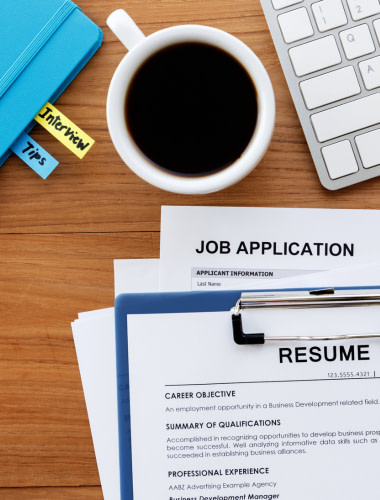This article is recommended for individuals near the beginning of their careers

How to select a referee
Choosing the right referee is an important decision that can significantly impact your chances of getting the job. Throughout my years in recruitment, I have unfortunately seen many job offers be rescinded due to a poor reference check.
When thinking about who you want to use as a referee, I recommend you select someone who:
I also recommend that you maintain a list of potential referees and their contact information, and update this list regularly as your career progresses. This will make it easier to choose an appropriate referee for jobs you apply for in the future.


How to ask someone to be a referee
Asking someone to be a referee for a job you've applied for is an important step, and it's crucial to do so politely and professionally. For example, you should:
Remember to be respectful, appreciative, and professional in your request, and always follow up with a thank-you note after they've provided the reference.
How to prepare your referee
Preparing your referee before they receive a reference check call is essential, as it will allow you to:
To prepare your referee, I recommend you get in touch with them before you pass their contact details to a potential employer and provide them with:
Adequately preparing your referee can help to ensure that the information they provide aligns with your application, is tailored to the specific job, and presents you in the best possible light.

When to delay reference checks
The timing of when your referee will be contacted will vary depending on the specific practices and preferences of the organisation you are applying to.
However, if a potential employer is requesting your referee's contact details too early in the process, you should politely request a delay until you have received a preliminary offer of employment. There are several reasons for this, for example:
To add a layer of complexity, the referee might end up telling your past colleagues, and inadvertently sharing your job search struggles. Suddenly, your privacy is compromised, and your past managers and colleagues are in the loop about your quest for a new opportunity.
That's why I always advise job seekers to have an earnest conversation with their referees. Politely request them to treat your job search as confidential information. And if a recruiter presses you for references early on in the hiring process, exercise caution.
So, I urge you to take charge of your reference checks. Make sure they only come into play once a preliminary offer is on the table. And while you're at it, have an honest conversation with your referees, kindly requesting their discretion.


Are you looking for a job?
Now that you know how to ask someone to be a referee, you should take a moment to check our current vacancies page.
At 11 Recruitment, we have a range of white-collar temp and perm jobs available. We're always on the lookout for top talent to place with our clients, so we encourage you to apply for any positions that are of interest.
If none of our current vacancies are right for you, you should register for job alerts. Then we’ll be able to notify you when we receive a position that matches your profile.

What are your thoughts?
I'd love to have a conversation with you about this topic - please leave a comment below if you have any thoughts or opinions 🙂
Christian Madsen
Managing Director of 11 Recruitment





















Thanks so much for creating this content! It makes sense and I’m glad to learn about these useful tips.👍👍
Hi Connie, thanks for your comment – I’m glad you found the article helpful 🙂
If you haven’t already seen it, I have another blog post on the topic of referees that you might enjoy: https://11recruitment.com.au/blog/should-you-put-referees-on-your-cv/
Thanks a lot for a valuable gesture and mind-blowing reply Sir.
Hey I am mechanical associate engineer and boilers engineer my experience with boilers and mechanical feeld
Hi Akhlaq, thanks for your comment. We don’t currently have any vacancies available in that area. I encourage you to register for job alerts so you can be notified when we have positions that may be suitable: https://11recruitment.com.au/job-seeker-services/register-for-job-alerts/
Good luck in your job search! 🙂
Thanks for highlighting me on some certain things to consider when writing CV.I really appreciate.
Hi Samuel, thanks for taking the time to leave a comment. I’m glad you enjoyed the article 🙂
If you haven’t already, you should read my related article on why you shouldn’t include referees on your CV: https://11recruitment.com.au/blog/should-you-put-referees-on-your-cv/
Thank you for the clarification and it is much helpful to me.
Hi Judith, thank you so much for your comment! I’m glad to hear you found the article useful 🙂